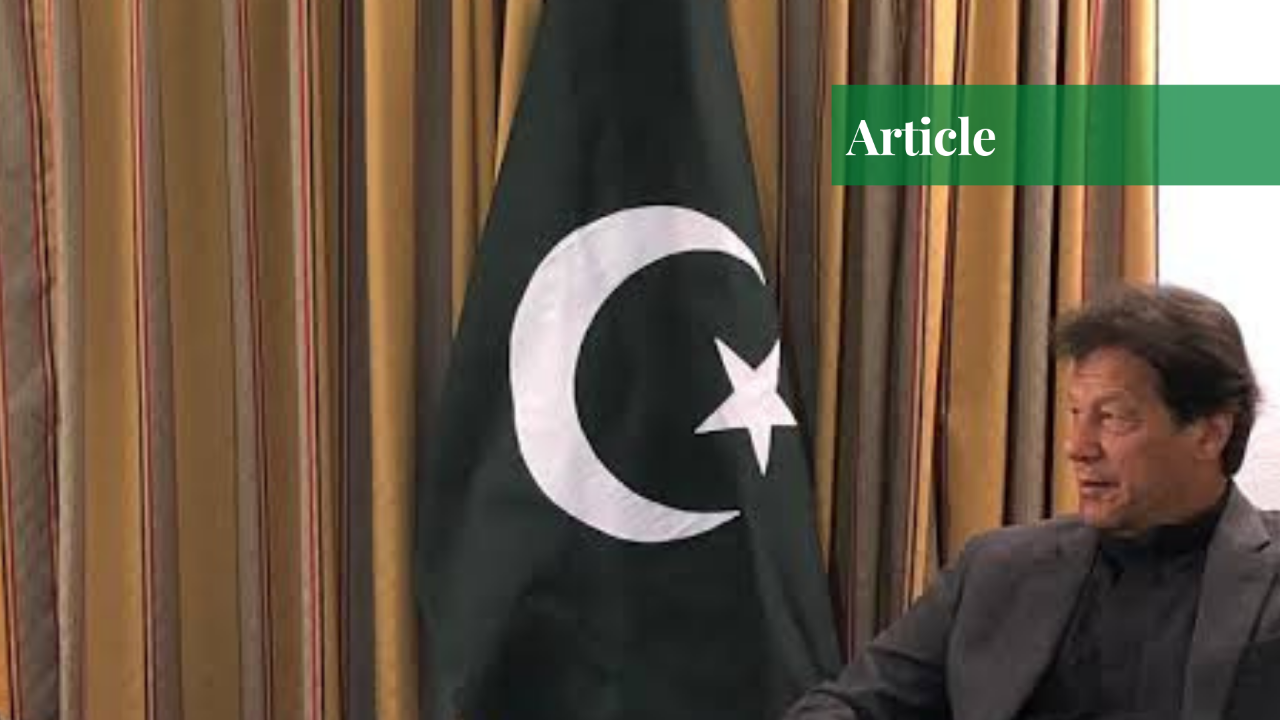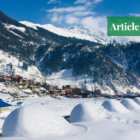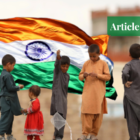Ms. Damiya Saghir completed her Bachelor's in Political Science from Kinnaird College and is currently pursuing her MPhil in Political Science from the same university. She is a Research Associate at the Maritime Centre of Excellence. Ms Damiya was previously employed as a project officer at the Pakistan Institute of Legislative Development and Transparency (PILDAT.) Her areas of interest include politics, defense studies, International Relations, and governance.
Before the PTI Government
The Islamic Republic of Pakistan finds itself to be a parliamentary government that is a democratic repository of the citizen’s will, in futuristic investment to make the country’s democratic institutions work well and meet the expectations of the electorate. The fragile but ever-evolving democracy of Pakistan has occupied numerous challenges and threats.
There was an initial delay of 9 years in constitution-making, and it was barely able to breathe for 2 years (1956-1958), paving way for the first martial law in the country legitimized by the higher judiciary in the name of ‘doctrine of necessity’. Thus, the unfortunate episode followed by various such eras until 2008 left Pakistan not only in ever-increasing socio-political and economic pitfalls, but the mandate of the people of Pakistan was barely respected in the country.
In 2008, the people of Pakistan reclaimed their democratic rights after experiencing the fourth hybrid-military regime (1999-2008). Pakistan People’s Party (PPP) was mandated to form the government as the 13th National Assembly was set up in Pakistan. The tenure of PPP addressed few constitutional issues in the 18th constitutional amendment by federalizing the state in its true sense.
Moreover, granting provincial autonomy to the provinces and re-activating constitutional mechanisms such as the Council of Common Interest, the National Economic Council, and the National Finance Commission were the significant approaches of the parliamentary regime. Leaving some challenges behind, the government completed its 5-year constitutional term followed by the national elections in 2013.
The next parliamentary tenure was handed over to Pakistan Muslim League-Nawaz (PML-N) to run for the next 5 years. PPP and Pakistan Tehreek-e-Insaf (PTI) happened to be tough opposition for the government, barely allowing them to function. The fragile but ever-evolving democracy which helped PML (N) in completing their tenure was encouraging for the parliament and for the people of Pakistan.
While the democratic procedure stabilizes as the elected government complete their 5-year tenure, it is deemed necessary that an evaluation of how the country will run and who will run it in the future is discussed. In the last decade, people have witnessed the government of PPP and of PML-N. While both went through tough opposition and decision-making for the country, they did win themselves true voters and support for the upcoming General Elections.
However, this might not be the case with PTI. In 2018, when PTI Chairman Imran Khan stood tall on the ladder championed by youth, he made several promises and committed to the people of Pakistan a successful government, unlike the previous one that remained focused on self-gains and not for the country. Being a rookie, it was easier for everyone to give Khan the benefit of doubt as to how to run the country with no experience at all, but in two years, the government is set to complete its tenure.
While people remain mostly unhappy with the government’s performance, it raises a big question as to who will win the next general elections?
Performance Analysis
The 2023 general elections of Pakistan remain to be a crucial matter as the PTI government has yet to perform for the next two years. However, based on its performance during the last three years, it seems like the government will remain to be an unguided missile for the country. For the first time in 2018, PTI’s government took hold of the center while also playing its part in Punjab and Khyber Pakhtunkhwa (KPK).
It took Khan a lot of struggles to gain the trust of the citizens. Not that the previous governments were any better than this one, but they sure are scored in the higher ranks in comparison to this one. Since the day PTI took hold of the government, the GDP growth has been slowest of all times increasing the rates of inflation in the country.
Not only has it affected the people with prices of necessary commodities reaching new heights, but also the debt of the country has risen approximately around 11.64 billion dollars from 24.95 billion to 36.6 billion dollars. On the other hand, the government has remained in place and unshaken due to the support it has from several institutions.
During these three years, the federal government has had to go through a pandemic which it survived with its governance better than many other states. The provincial governments did play their essential role. Despite these efforts, it remains doubtful that PTI will be able to maintain its confidence on the ground of governance.
Performance analysis remains incomplete without discussing the opposition. In the lead, the PML-N and PPP tried to make things worse for the government and combined alongside Jamaat-e-Islami to form the Pakistan Democratic Movement (PDM). Initially, the movement had one aim, to overthrow the PTI government by calling it a hybrid and selected government acting on behalf of the military.
Soon the picture for PDM itself went upside down when Maryam Nawaz and Bilawal Bhutto argued over what they wanted. The leading parties have acted differently throughout these 3 years. Each of them has had different motives in the parliament and none of them were ready to collaborate for the benefit of the country. A chaotic parliament has left the country startled.
Foreign Relations
Khan has really proved to be a foreign spokesperson for Pakistan. During the last three years, relations with many countries like China, Turkey, Malaysia have taken off. The government also has had a very positive response toward the neighboring conflict. The opening of the Kartarpur corridor for the Indian Sikh community was a remarkable decision made by the government, applauded worldwide.
However, even with such a great opening, the image of Pakistan continues to be shaken because of international and national policies made and voices raised for concerns. As Pakistan remains on the red list for traveling by many countries despite having performed better than some of the rest during the pandemic, shows the diplomatic command to be wobblier than before. Despite all, the CPEC project continues to gain more attention along with the military provided with higher budgets than ever.
Economic Policies
As stated in Pakistan economic survey 2020-2021, the economy has witnessed a V-shaped recovery, but as the public remains hooked to inflation and poverty due to striking market prices, there are many things that have remained unnoticed. The PTI government has envisioned empowering economic growth and the expansion in remittances in Pakistan, and primary balance surplus is one such example of inclining towards a steady economic structure.
The closure of shops, malls, and transportation due to the pandemic greatly affected the exports of locally produced wheat, sugar, edible oil, tea, lentils, etcetera. The current government introduced the Ease of Doing Business (EODB) in order to bring forward the liberal foreign investment regime. Due to this initiative, an improvement took place in Pakistan’s economic world ranking from 147 in 2018 to 136 in 2019, and leading its way to 108 in the year 2020.
Digital Dream
The current PTI government is all about going digital Pakistan. As reported, the Indian IT exports stand at $126 billion, the Philippines at $26 billion, and Pakistan at $2 billion. There has been an expansion of e-commerce in Pakistan. Various international platforms such as Amazon have registered Pakistani sellers to go global with their sales. Although the purchasing power remains stagnant and at a halt, digital development was mandatory to take place with the modern interaction.
Environmental Success
While the public stands opposed to the government’s sustainable and inclusive economic growth in Pakistan, the country has acquired its sustainable development goals the fastest during the last three years. Climate change, global warming, and natural resources have remained the primary aim of the government during the last three years.
According to WWF, Pakistan has remained to be a forest poor country which was changed by Premier Imran Khan who initiated an environment-friendly policy through the 10 billion tree tsunami project. Green recovery programs and climate change have been of most priority for the current government. These initiatives have remained aloof and neglected by the previous governments.
Pakistan’s green economic policies have not only been recognized but also have been applauded worldwide. Pakistan stands geographically vulnerable to climate change. It is also expected that due to the recent climate change and global warming wave, the intensity and frequency of extreme disastrous climate change can take place. In such time, Pakistan’s effort to commence a balancing act will help limit the calamitous outcomes.
During these three years, the government has canceled the coal mining plant and replaced it with hydroelectric power. More than 85,000 green jobs have been created via plant care and forest protection. The policy determines to recruit 5000 young people as nature guardians. Moreover, the current government has invested $180 million for green space by funding 15 new national parks while also investing $500 million in green Eurobonds.
What Will the Future Be Like?
PTI stumbled into the government with its majestic and sprawling promises. While many believed that evaluating a party on its performance in two years was quite early to say anything, but as the government completes its three-year mark, the debt of the country is now 27 percent of the GDP. This means that the low inflation and a negative GDP will only mean a devious loss for the people in Pakistan, if not by Covid-19 in the remaining 2 years of the current government.
On the other hand, PML-N after Nawaz Sharif seems to be torn between the viewpoints of Maryam Nawaz and Shahbaz Sharif. Not many are Maryam Nawaz’s followers as compared to that of Shahbaz Sharif’s. Widely popular in Punjab, PML-N will be able to regain its position in the province due to the anemic performance of PTI leadership.
The expansive promises of PTI before coming to power about south Punjab and the region’s better infrastructure and labor appreciation were unable to be delivered due to which the party and its leadership came across to be demagogues. Despite that, PML-N will not be able to regain the center as the inner politics among them seem to be quite tricky for splitting the population.
Sindh has always been a home ground for PPP. However, the youth have remained unimpressed by Bilawal Bhutto as his inexperience talks about how he can be a misfit, guided only as a puppet by the senior representatives of the party. Bilawal and Khan do not differ in many ways except Khan is guided by a much stronger institution which brings Bilawal to regain Sindh, but the federal unit might not be his ground for the upcoming elections.
PTI will hold its ground in KPK and as well as the center. This comes not by performance but by the support of various institutions who are practically responsible for maintaining the writ of the state. The government will have to perform exceptionally well in the next two years to continue having support for the upcoming election. Whoever wins next should try to form a strong coalition with the leading party in order to settle a recurring conflict.
If you want to submit your articles and/or research papers, please check the Submissions page.
The views and opinions expressed in this article/paper are the author’s own and do not necessarily reflect the editorial position of Paradigm Shift.



















